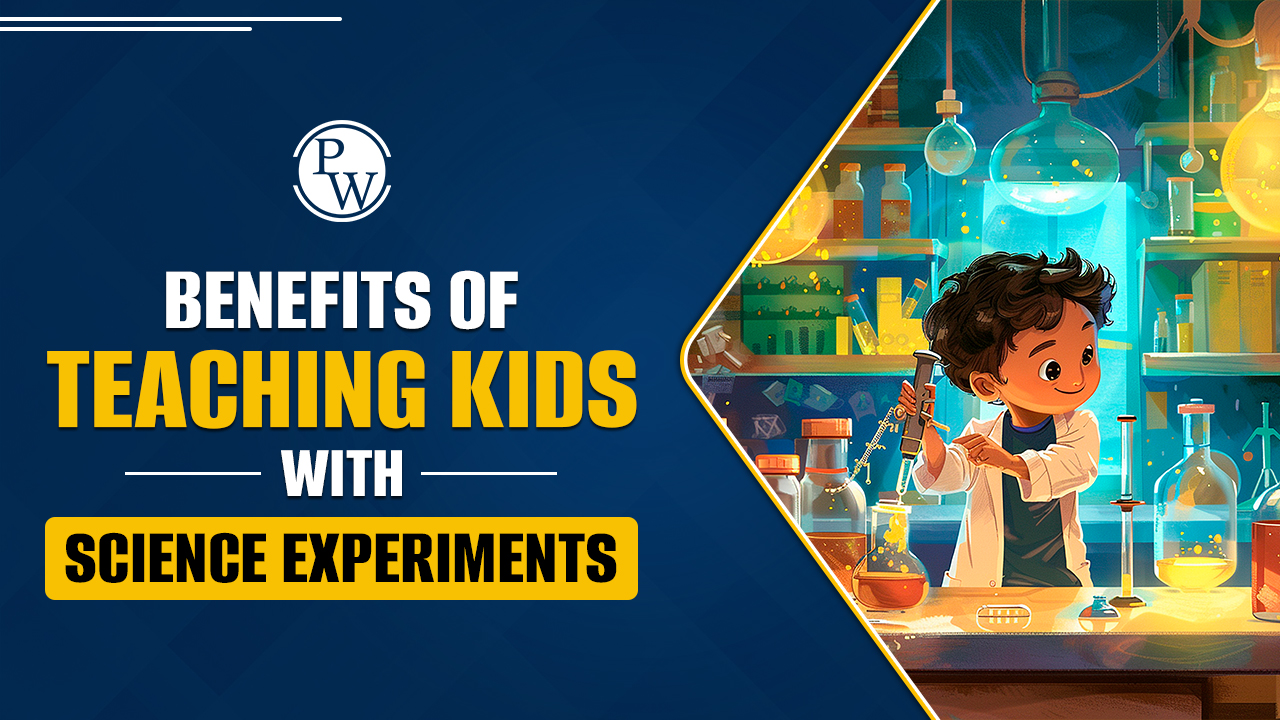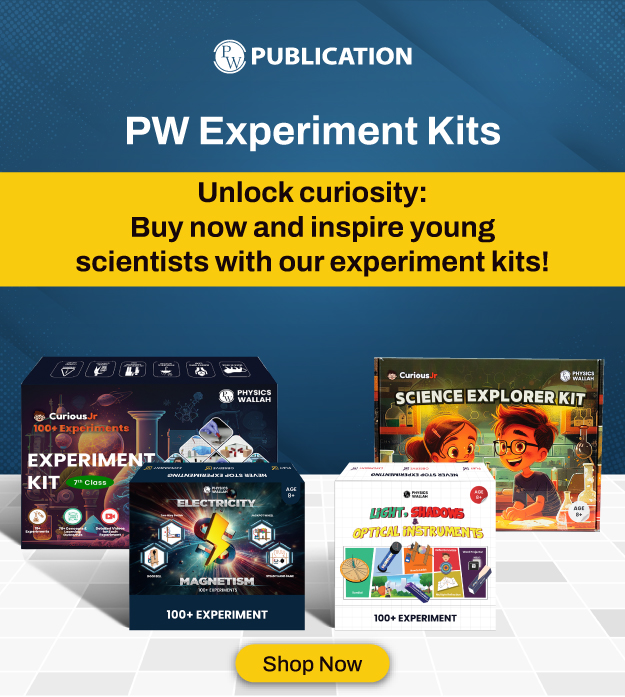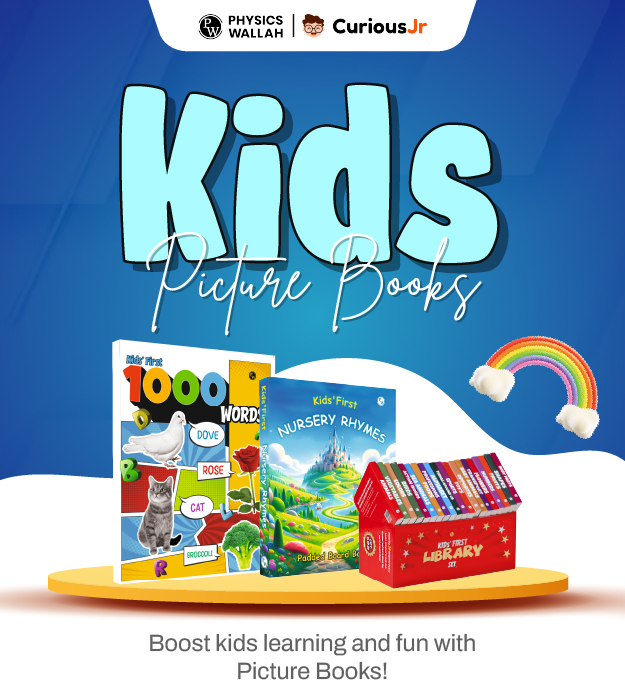Benefits of Teaching Kids with Science Experiments

Benefits of Teaching Kids with Science Experiments: Teaching kids through science experiments is one of the most engaging and effective methods to help them learn. It sparks curiosity, builds critical thinking skills, and allows children to understand complex concepts in a fun and hands-on way. Science experiments don't just teach children about science; they also help them in various areas of life, from problem-solving to collaboration. In this article, we will explore the many benefits of using science experiments to teach kids and how they can make learning exciting.
Check out: PW Activity Kits
Benefits of Teaching Kids with Science Experiments
The benefits of teaching kids with Science experiments is updated below
1. Makes Learning Fun and Engaging
One of the most significant advantages of teaching kids with science experiments is that it makes learning fun. Traditional teaching methods, like reading textbooks or listening to lectures, can sometimes feel dry and uninspiring. However, science experiments are interactive and hands-on, which instantly grabs the attention of kids. They get to see things happen in real-time, which makes learning more enjoyable and memorable.
For example, kids can watch how a baking soda volcano erupts or how a plant grows from a seed, and they get excited about what happens next. The fun aspect of experimenting makes learning something kids look forward to, rather than something they have to do.
2. Encourages Curiosity and Exploration
Science experiments naturally stimulate curiosity. When kids observe something interesting or unexpected happening in an experiment, they want to know why or how it happened. This encourages them to ask questions and seek answers. Science is all about exploring the unknown, and by doing experiments, children begin to adopt the mindset of scientists. They learn how to ask questions, test their hypotheses, and explore new ideas.
For instance, when a child mixes different liquids to create a colorful reaction, they might wonder why the colors change or how the ingredients interact. This curiosity leads to deeper learning and a better understanding of scientific concepts.
Also check: STEM Kits
3. Improves Critical Thinking and Problem-Solving Skills
Science experiments require children to think critically and solve problems as they go along. Kids learn how to observe, analyze, and make decisions based on what they see. They may have to figure out why something didn’t work or think of a new way to conduct the experiment. This promotes important life skills like problem-solving, logical reasoning, and critical thinking.
4. Enhances Hands-On Learning and Motor Skills
When kids perform science experiments, they are often required to use their hands to mix substances, measure ingredients, or build simple structures. This promotes hands-on learning and the development of fine motor skills. Whether it’s mixing liquids, assembling a simple machine, or planting seeds, these activities help children develop coordination and control over their movements.
Even basic tasks like pouring water, stirring, or cutting paper help in building motor skills that are necessary for everyday tasks. These skills are foundational for young learners and contribute to their overall development.
5. Improves Understanding of Scientific Concepts
Many scientific concepts can be difficult for kids to grasp through traditional learning methods. However, science experiments help make these concepts more accessible. When children are able to see concepts like gravity, chemical reactions, or the water cycle in action, they are more likely to understand and remember them.
For example, when kids perform an experiment where they make a paper airplane, they naturally learn about concepts like air resistance and force. They may not use these technical terms at first, but through hands-on experience, they develop a foundational understanding of how these forces work in the world around them.
Read More: 10 Science Project Ideas for Class 10
6. Encourages Teamwork and Collaboration
Science experiments often require students to work together in pairs or groups. This helps them learn important social skills such as teamwork, communication, and collaboration. Working in teams allows children to share ideas, discuss their observations, and learn from each other.
When children collaborate on experiments, they also learn how to solve problems together. If one child’s idea doesn’t work, others might suggest a different approach. This encourages open-mindedness and teaches kids the value of working with others to achieve common goals.
7. Builds Confidence and a Growth Mindset
When kids successfully complete a science experiment, they gain a sense of achievement and confidence in their abilities. Even if an experiment doesn’t go as planned, they learn that it’s okay to fail and that failure is often part of the learning process. This builds a growth mindset, where children believe that they can improve with effort and persistence.
For example, if a child’s volcano experiment doesn’t erupt the way they expected, they might try again, making changes to the ingredients or procedure. They learn that mistakes are opportunities to learn and grow, which encourages resilience and perseverance.
8. Teaches Cause and Effect Relationships
Science experiments often involve children manipulating variables to see how changes affect outcomes. This teaches them about cause and effect—how one action leads to a specific result. This is a fundamental skill that helps kids understand how the world works and prepares them for more complex scientific studies later on.
For example, if a child adds vinegar to baking soda and watches it bubble up, they learn that the reaction between these two substances causes the release of gas. They begin to understand that actions have predictable outcomes, which is an important lesson in science and life.
Read More: Science Projects for Class 7th
9. Promotes Scientific Literacy and Inquiry-Based Learning
When kids participate in science experiments, they develop a deeper understanding of how science works and become more scientifically literate. They learn that science is about making observations, asking questions, conducting experiments, and analyzing data. This kind of inquiry-based learning encourages children to think like scientists, which is a valuable skill in today’s world.
By practicing experiments, students learn the scientific method—asking questions, forming hypotheses, testing ideas, and analyzing results. This methodical approach helps them become better at solving problems in school and in real life.
10. Supports Long-Term Memory Retention
Research shows that kids retain information better when they are actively involved in learning rather than just listening or reading. Science experiments involve active participation, which helps reinforce learning and improve memory. The hands-on approach allows children to make connections between abstract concepts and real-world examples, making it easier to remember information for the long term.
For example, if a child performs an experiment to grow a plant, they will remember the process much better than if they had just read about it in a textbook. The act of planting seeds, watering them, and watching them grow helps reinforce key ideas about life cycles and plant biology.
11. Fosters Creativity and Innovation
Science experiments encourage kids to think creatively and come up with new ideas. Whether they are designing their own experiments or figuring out how to improve an existing one, children have the opportunity to use their imagination and problem-solving skills. This fosters creativity and encourages them to approach challenges with innovative thinking.
For instance, if kids are tasked with creating a water filter from household materials, they will need to come up with creative ways to purify the water, testing different materials like sand, charcoal, and cloth. This encourages them to think outside the box.
12. Promotes Curiosity About the World Around Them
Science experiments help children develop a sense of wonder and curiosity about the world they live in. By seeing how things work in real life, children begin to ask more questions and seek answers about the natural world. This curiosity fosters a lifelong interest in learning and exploration.
Read More: Class 8 Science Project Ideas
Benefits Science Experiments FAQs
Q1. Why are science experiments beneficial for kids?
Ans. Science experiments are beneficial because they engage children in hands-on learning, which helps them understand complex concepts, develop problem-solving skills, and foster curiosity about the world around them. They make learning more interactive and enjoyable.
Q2. How do science experiments help in developing critical thinking?
Ans. Science experiments require kids to observe, analyze, and make decisions based on the results they see. This process of inquiry encourages critical thinking, as they must evaluate their hypotheses and make sense of the outcomes to solve problems.
Q3. How do science experiments make learning fun?
Ans. Science experiments make learning fun by allowing kids to participate actively in the process. Instead of just reading or listening, they get to engage directly with the subject matter, which makes the experience exciting and memorable.
Q4. What skills do kids develop through science experiments?
Ans. Through science experiments, kids develop a variety of skills, including problem-solving, creativity, critical thinking, teamwork, fine motor skills, and communication. These skills are valuable not only in science but in everyday life.










